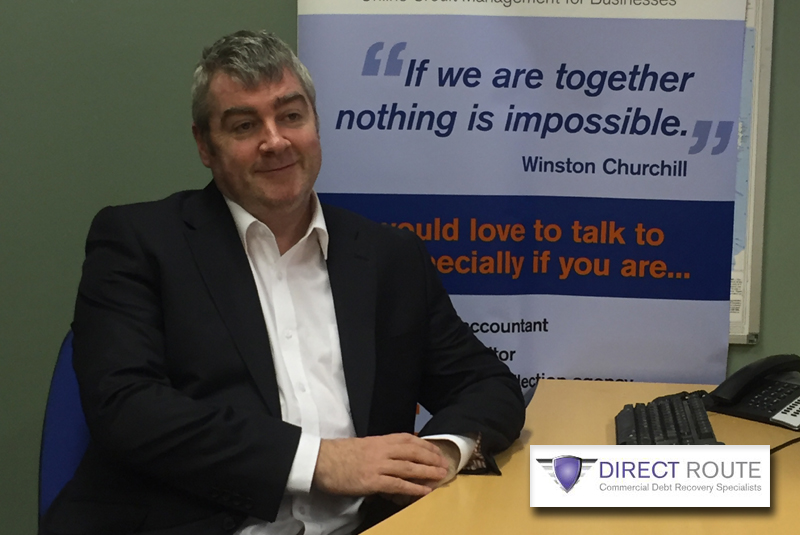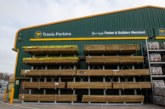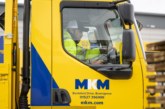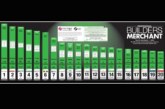
Mike Collins, Founder and Managing Director of Direct Route business to business debt recovery specialists and AccountAssyst online credit management, outlines the key cosiderations in selecting a debt recovery partner.
Despite pandemic restrictions and uncertainties, merchants are nevertheless adapting with the speed, professionalism, and innovation they are renowned for. But when it comes to collecting overdue invoices or customer debt, it is now more challenging than ever.
Locating hard to reach customers with home working or even still furloughed staff; a time pressed credit management team, customers struggling to balance their own books at the expense of paying their bills… there are many reasons why debt is being left to build.
As a team we specialise in the builders merchants’ sector and have done so for many years. This gives us more insight than your ‘usual’ debt recovery company. We know from ongoing conversations with merchants the length and breadth of the UK that your credit teams are stretched to say the least and despite the fact that a number of you are currently cash only this does not chip away at your debtor list or easily create repeat business.
And this list usually comprises good customers that owe you money and that you still want to maintain a trading relationship with because they will eventually pay you, and those not so good customers with no intention of ever paying you.
If you find are in this position, you may be considering a debt recovery specialist. But how do you know that you have chosen a professional business that will act in a professional and courteous manner, representing your brand – firm but fair and effective, versus one that does not deliver on any of this important criteria?
We hope these 10 time served tips will help you make an informed choice:
1: Don’t just look at their website as your first base. Google their name, look them up on LinkedIn to form your initial impression. Their website should be comprehensive, detailing their services, their fees and how they work. Be wary too of what are clearly manufactured ‘Google reviews’ – good and bad.
2: Do they have the CSA logo on their literature and website? The Credit Services Association is the only national association in the UK for organisations active in the debt collection and purchase industry. Don’t choose one of the 10% of debt collection businesses that are not part of the CSA.
3: Make sure they are business to business specialists with a track record of experience and expertise gained from collecting for builders’ merchants as well as other sectors. This means they will fully understand your requirements and will have real know how on how to approach your debtor customers. And they should be able to collect your debt in a shorter time frame than a company lacking this knowledge and experience.
4: Ask for testimonials and feedback on debts they have recovered, and overdue invoices collected for other builders’ merchants. They should have this in plentiful supply, and it gives another indication of their track record. How often do they have to resort to legal action to recover debts? Are they largely successful due to the expertise and tenacity of their pre-legal collections’ team – with legal being the very last button to press?
This is important because you don’t want to find yourself in a position of regularly having to pay for court proceedings to be issued on your behalf, especially given the current question mark surrounding effective enforcement visitation in the social distancing climate.
5: Are they more than happy to collect your small debts (£100) as well as the larger debts (five figures upwards)? Some will not collect small debts.
6: Is the collections’ team in-house and on the payroll or self-employed and collecting remotely? This will give you an idea of size, strength, capability, and the investment they make (or don’t) in their team.
7: What services do they provide? A good business will offer a range of debt collection services including ‘softer collection services’ when you ideally want to maintain a trading relationship with your customer. If this does not work out and your customer fails to pay, you can always move to one of their full debt recovery services.
8: What are their fees? If you have used solicitors in the past for sending Letters before Action and for full debt recovery you’re likely to be pleasantly surprised by the fees charged especially if they use late payment legislation so their fees are recovered from your debtor client, so you in effect pay nothing.
9: Automated systems are important and a good agency will have proper track and trace email systems (so they know exactly when a debtor opened their emails with the audit trail and supporting notes maintained on their system) but they should not lose the personal touch. Do they have support staff you can talk to? An internet-only service is good but only when the collections’ process is simple – the debtor immediately responds and pays promptly – which it rarely is!
10: Will they offer robust credit management/collections’ advice for your credit management team when you instruct them with the first debt(s)? It could be that a few changes to your credit management processes, for example the information you gather at the account opening stage, taking regular credit reports etc will have a positive impact on reducing debtor customers. This one to one advice is valuable.
Finally, when you’ve made your choice, look upon your debt recovery specialist as an important service provider to your business. Don’t underestimate the part they can play in boosting your cashflow and contributing to your longer-term economic stability. Work with them, build mutual respect and you’ll have a strong partnership that serves both parties well.
A BMF service member, Direct Route Collections would like to hear from merchants in need of help and advice during the concerning current climate. For more information visit www.directroute.co.uk
Click here to read Direct Route’s previous article on how to collect cash and keep customers.









